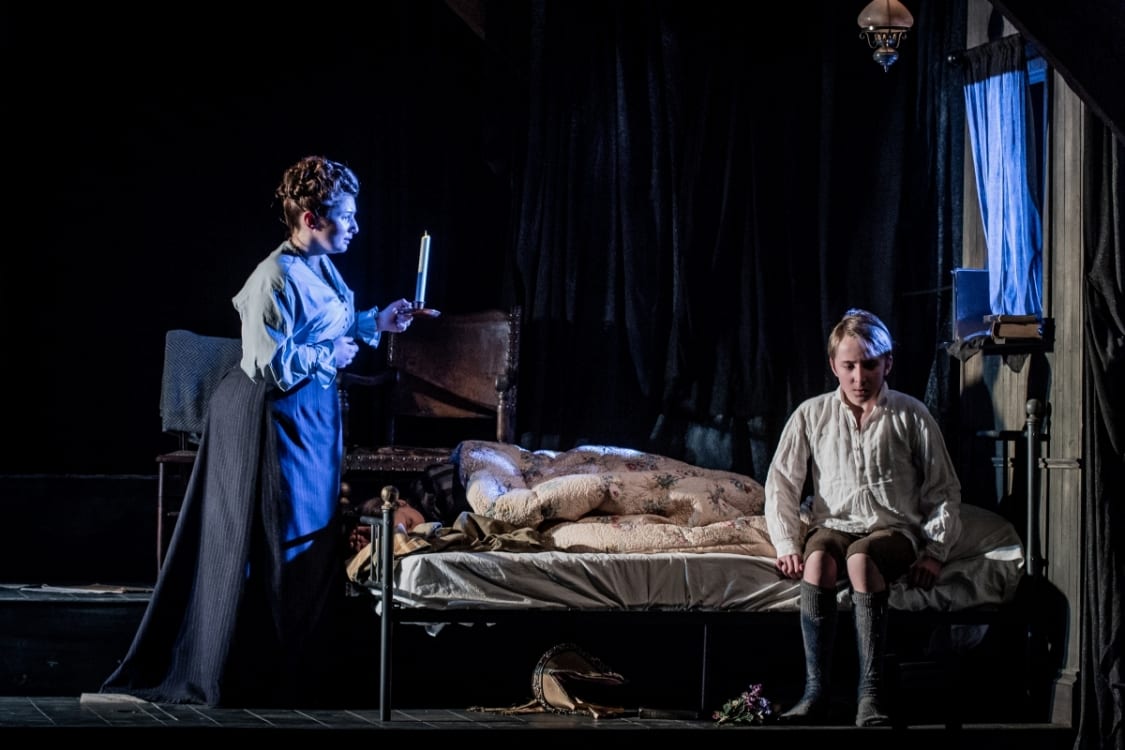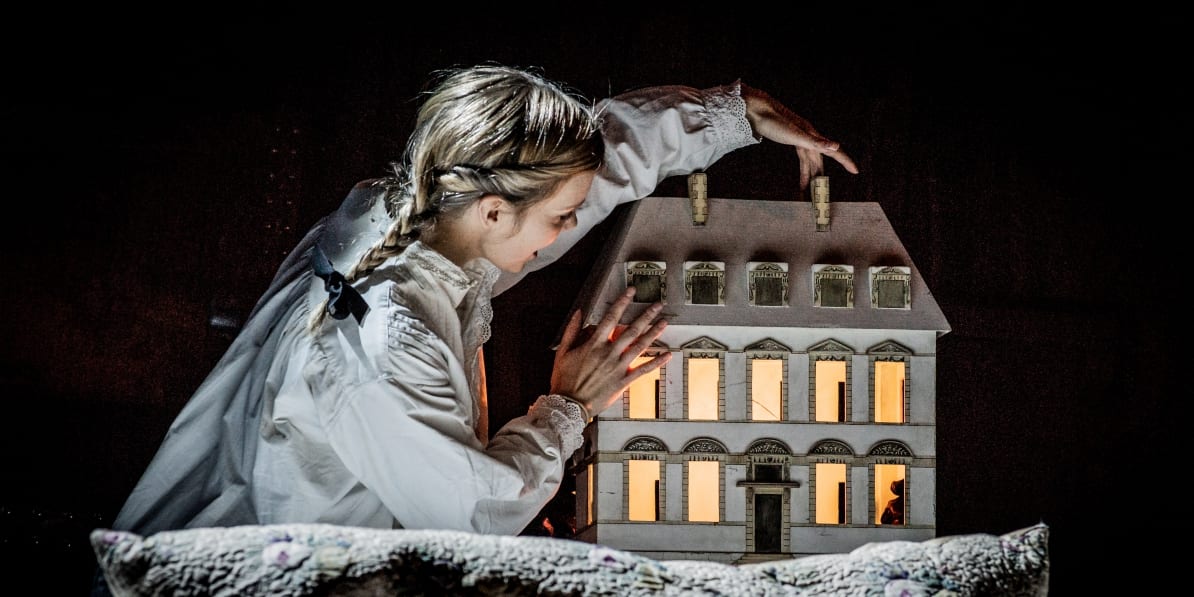Bury Court Opera has surpassed its own high standards with this superb version of Britten’s The Turn of the Screw. In a perceptive programme note director Ella Marchment points out how the work defies easy answers and demands an approach that allows a “dichotomy of opposites” to thrive. On the surface, it is a Victorian ghost story which presents the victory of evil over good – but it is an opera where layers of meaning, enhanced by Britten’s gripping score, leave the audience constantly on edge, puzzling about what exactly is happening as the drama unfolds. Between them, the excellent cast of singers, the brilliant production team and the Chroma Ensemble of virtuoso musicians have come up with the most powerful version of this opera that I have ever seen.
A governess is engaged by an unseen guardian in the city to look after two parentless young people who live in a house in the country. The governess is given strict instructions to get on with the job and not to bother the guardian. She arrives at the house to meet Flora and Miles and is warmly welcomed by the housekeeper Mrs Grose. Gradually it becomes clear to the governess that the children are somehow under the influence of two previous servants no longer at the house. As she learns more about these two, Quint and Miss Jessel, her fears for the well-being of the children grow and the struggle between the governess and the ‘ghosts’ for control of the children reaches a horrifying climax.

The actor/singers have clearly been chosen and cast with great care and all six deliver everything that could be asked of them and more. Andrew Dickinson as Quint and Daisy Brown as Jessel are spell-binding ghosts – they sound both real and other-worldly by turns and the way they appear and vanish is genuinely unsettling. Dickinson’s high and pure tenor voice start the chills flowing from his very first notes and there is a sensuality to Brown’s portrayal of Miss Jessel that is brave and very disturbing. Alison Rose is superb as the governess. Totally secure even in the most testing moments of the score, she brings out the governess’s developing sense of foreboding to perfection. Emily Gray is entirely convincing as the housekeeper, unable to accept that there is a threat to the children until it is too late. Jennifer Clark as Flora has a fine soprano voice and judges the difficult task of playing a child well and with style. And newcomer Harry Hetherington as Miles is simply magnificent. It is difficult to believe that this twelve-year-old is not a seasoned professional. This is a role that calls for real musical ability. Hetherington has that in abundance and adds a stage presence that is rare at any age.
And this brilliant team of performers is free to reach the heights because of a vision of the drama and a stage design concept that works stunningly well in the small space of Bury Court. Director Ella Marchment has found a way to frame the action and to gradually tighten the terror that does full justice to the way Britten’s score takes us on that journey. And huge credit to designer Holly Pigott, and especially to lighting designer, Ben Pickersgill, for the look of the work. Conductor Paul Wingfield has a masterly grasp of the score – deceptively simple at times with the nursery rhyme themes but rich and complex at other moments – and I have never heard the music come across so powerfully as in this production thanks to the Chroma Ensemble.
This is a superb opera and, while at one level it is a very effective ghost story, it is also a challenging and intriguing drama that asks difficult questions about a whole host of issues – how to balance promoting the rights and protecting the welfare of children; how different people can read different meanings into the same events. This production is a credit to Bury Court in its final season – what a pity there are only three performances.

